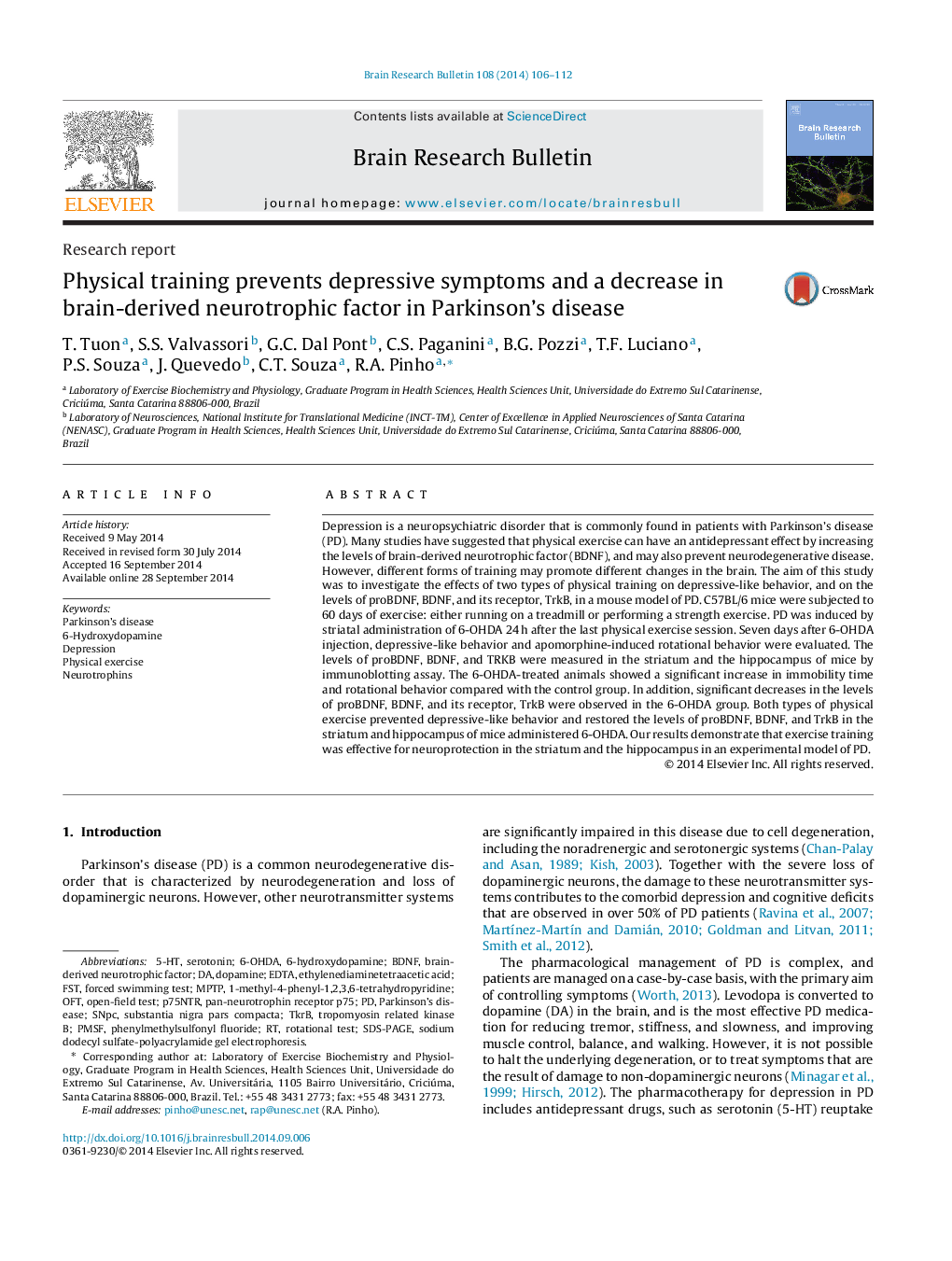| کد مقاله | کد نشریه | سال انتشار | مقاله انگلیسی | نسخه تمام متن |
|---|---|---|---|---|
| 6261779 | 1613247 | 2014 | 7 صفحه PDF | دانلود رایگان |
- We showed important changes in the behavior and neurochemical parameters induced by exercise in an experimental model of PD.
- We showed that running and strength training have specific responses on the behavior and neurochemical parameters.
- We showed that physical exercise modulates pro-BDNF, BDNF, and TrkB in the striatum and hippocampus.
- We showed that intensity of the effort is the most important factor to be considered when prescribing exercise.
Depression is a neuropsychiatric disorder that is commonly found in patients with Parkinson's disease (PD). Many studies have suggested that physical exercise can have an antidepressant effect by increasing the levels of brain-derived neurotrophic factor (BDNF), and may also prevent neurodegenerative disease. However, different forms of training may promote different changes in the brain. The aim of this study was to investigate the effects of two types of physical training on depressive-like behavior, and on the levels of proBDNF, BDNF, and its receptor, TrkB, in a mouse model of PD. C57BL/6 mice were subjected to 60 days of exercise: either running on a treadmill or performing a strength exercise. PD was induced by striatal administration of 6-OHDA 24Â h after the last physical exercise session. Seven days after 6-OHDA injection, depressive-like behavior and apomorphine-induced rotational behavior were evaluated. The levels of proBDNF, BDNF, and TRKB were measured in the striatum and the hippocampus of mice by immunoblotting assay. The 6-OHDA-treated animals showed a significant increase in immobility time and rotational behavior compared with the control group. In addition, significant decreases in the levels of proBDNF, BDNF, and its receptor, TrkB were observed in the 6-OHDA group. Both types of physical exercise prevented depressive-like behavior and restored the levels of proBDNF, BDNF, and TrkB in the striatum and hippocampus of mice administered 6-OHDA. Our results demonstrate that exercise training was effective for neuroprotection in the striatum and the hippocampus in an experimental model of PD.
Journal: Brain Research Bulletin - Volume 108, September 2014, Pages 106-112
